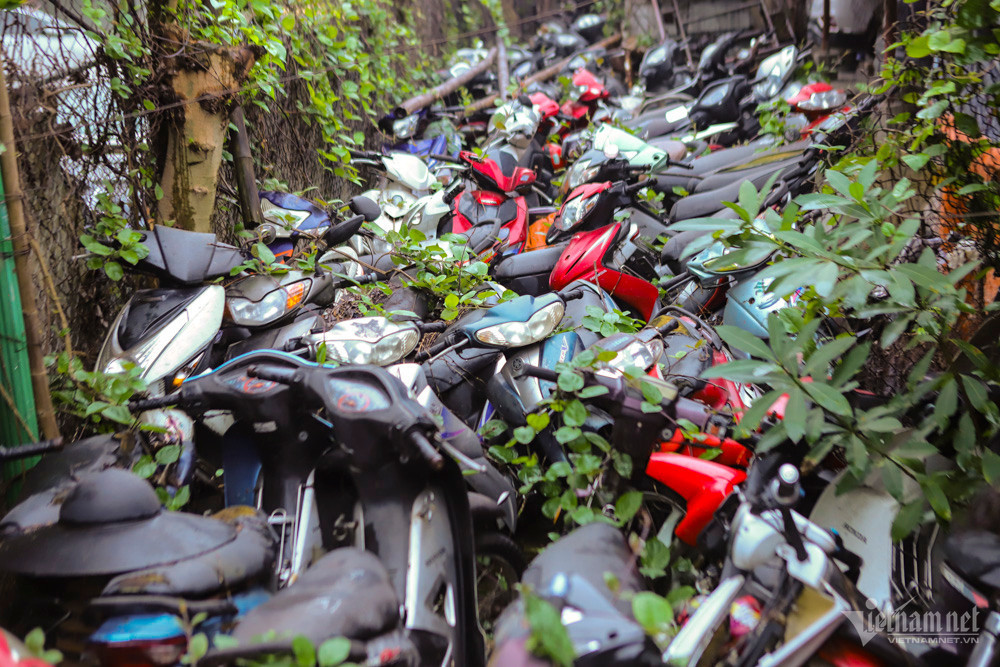
Under current regulations, the owners of these vehicles were fined and their vehicles are seized for seven days. Within three days after the seizure time ends, they have to turn up to get the vehicles.
If they don’t come, traffic police make an announcement in mass media and post a notice publicly at headquarters for 30 days. After that, the police will confiscate the vehicles and put them into auction to get money for the state budget.
However, local authorities complain about managing the vehicles. Many vehicle owners do not come to get their vehicles. The localities have to undergo many procedures to confiscate the vehicles.
As a result, tens of thousands of cars and motorbikes are under the sun and rain for many days and are getting damaged. When the police fulfill procedures for liquidation and organize auctions, the vehicles are just piles of scrap iron.
In Vietnam, motorbikes are the major means of transport. The thousands of vehicles seized are worth a mountain of money, said Pham Van Truong, a VietNamNet reader.
“What will happen if the motorbikes catch fire? Who will be blamed for this?” he said.
Meanwhile, Mai Van Thang, another reader, commented: “Private assets are also the assets of the nation. Why does such a big waste still occur?”
Le Van Tuan, 32, a software engineer, wrote on his Facebook page that state inspection agencies need to take tours and immediately handle the problem.
A taxi motorbike driver told VietNamNet that if he were the violator and his motorbike was seized by the police temporarily, he would abandon the motorbike.
“The fine is even higher than the value of the motorbike. So why should I take the motorbike back?” he said.
Many people have their motorbike seized because of violations related to detected alcohol concentration. Also, they have to pay a fine of up to VND8 million and have their driving licenses revoked for up to 24 months.
Ly Dao